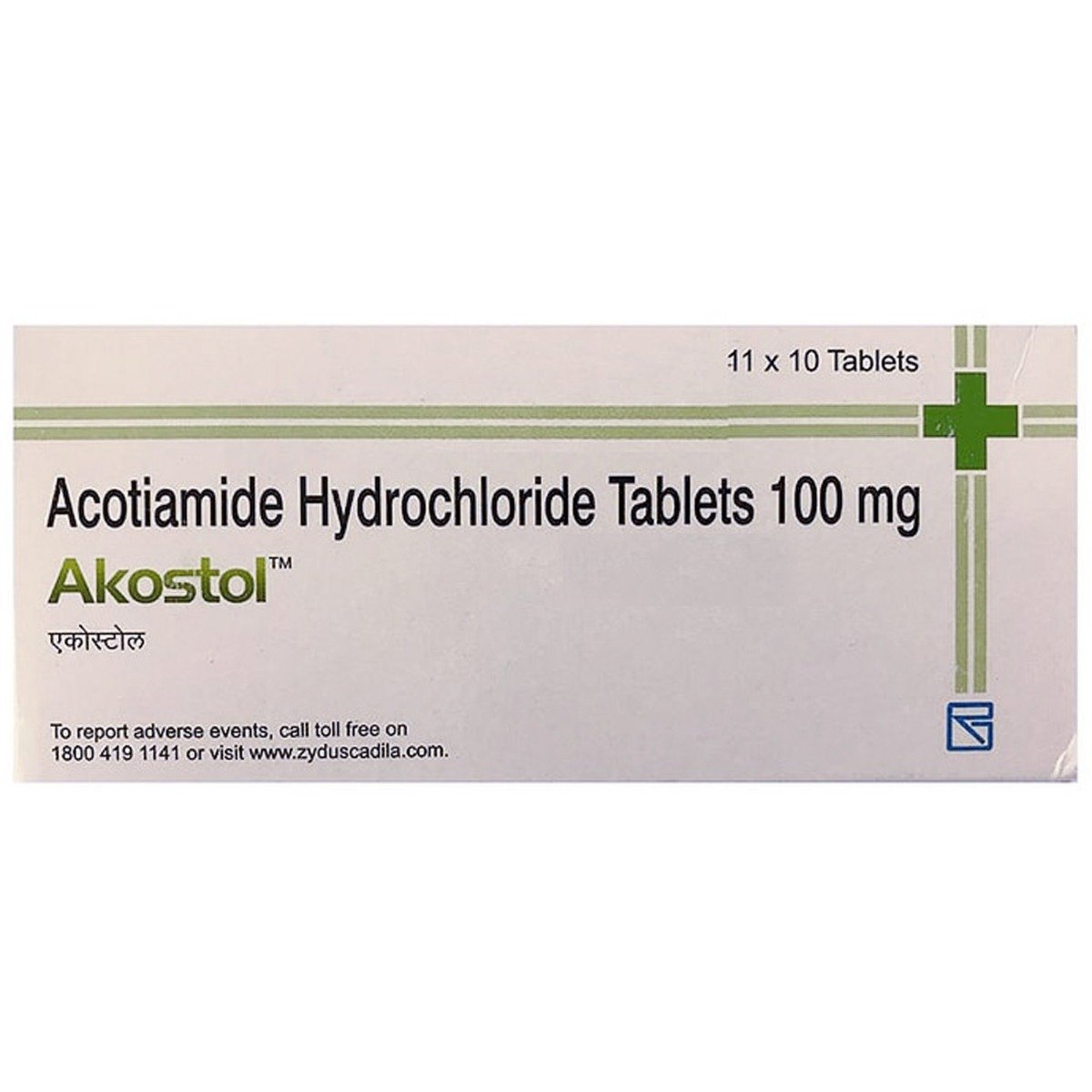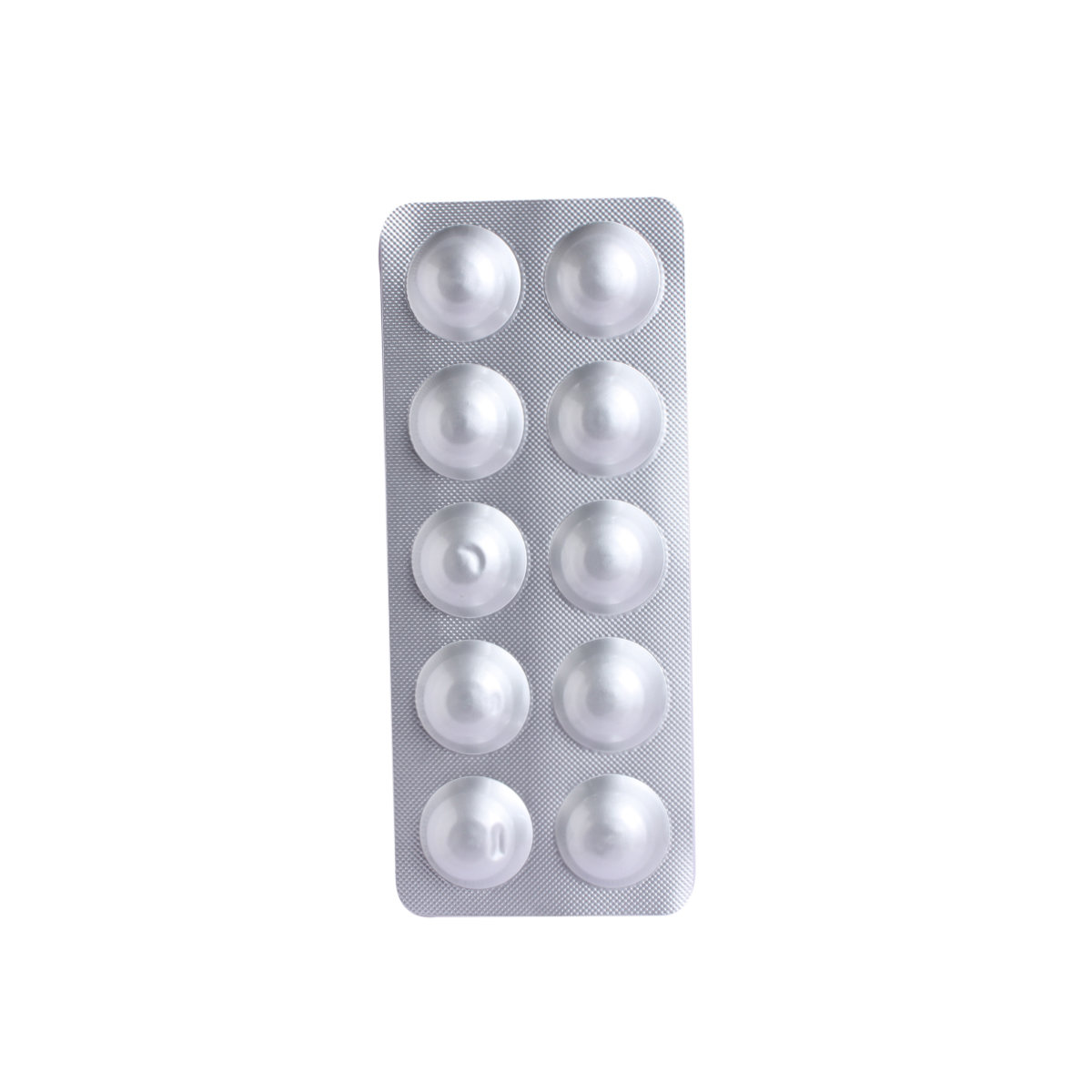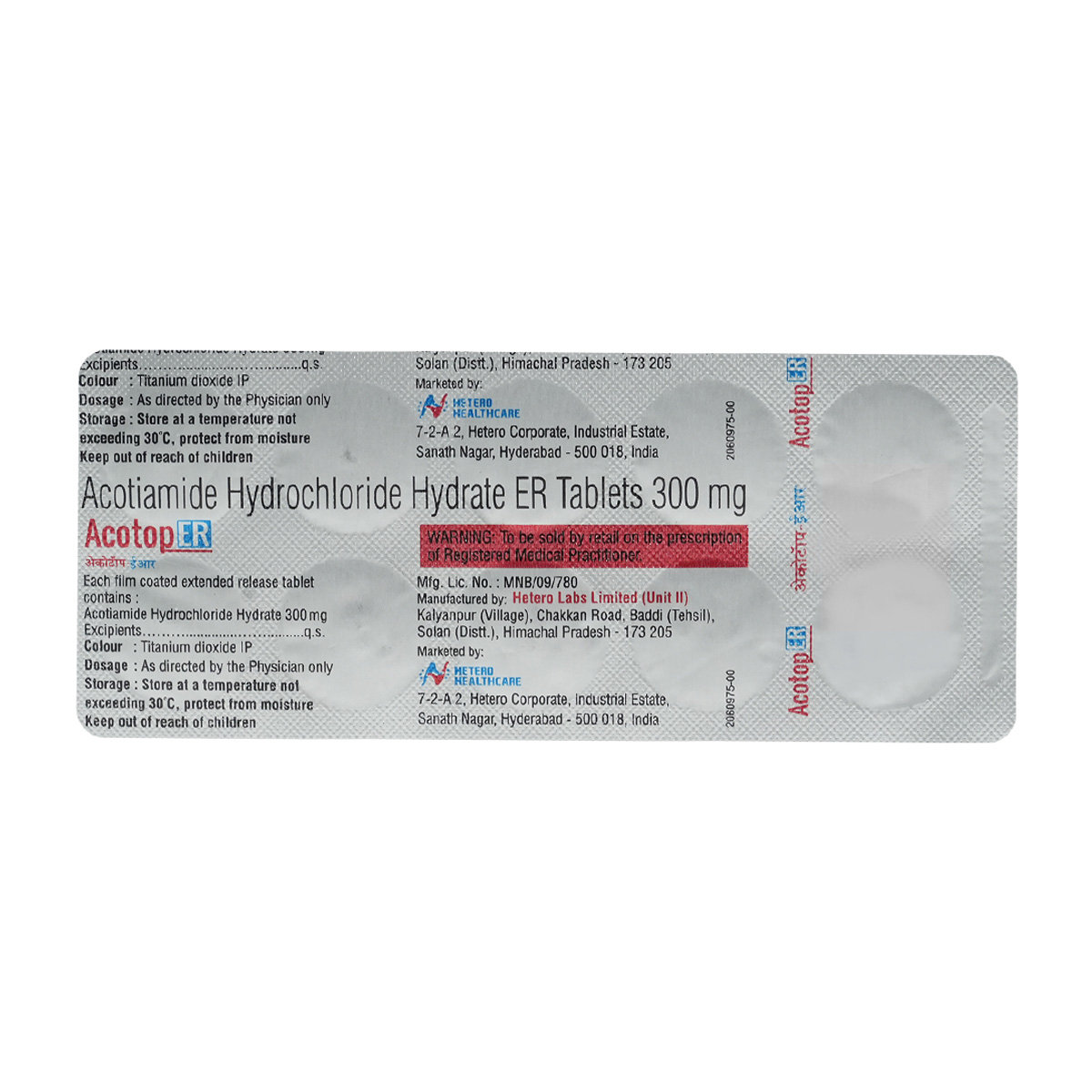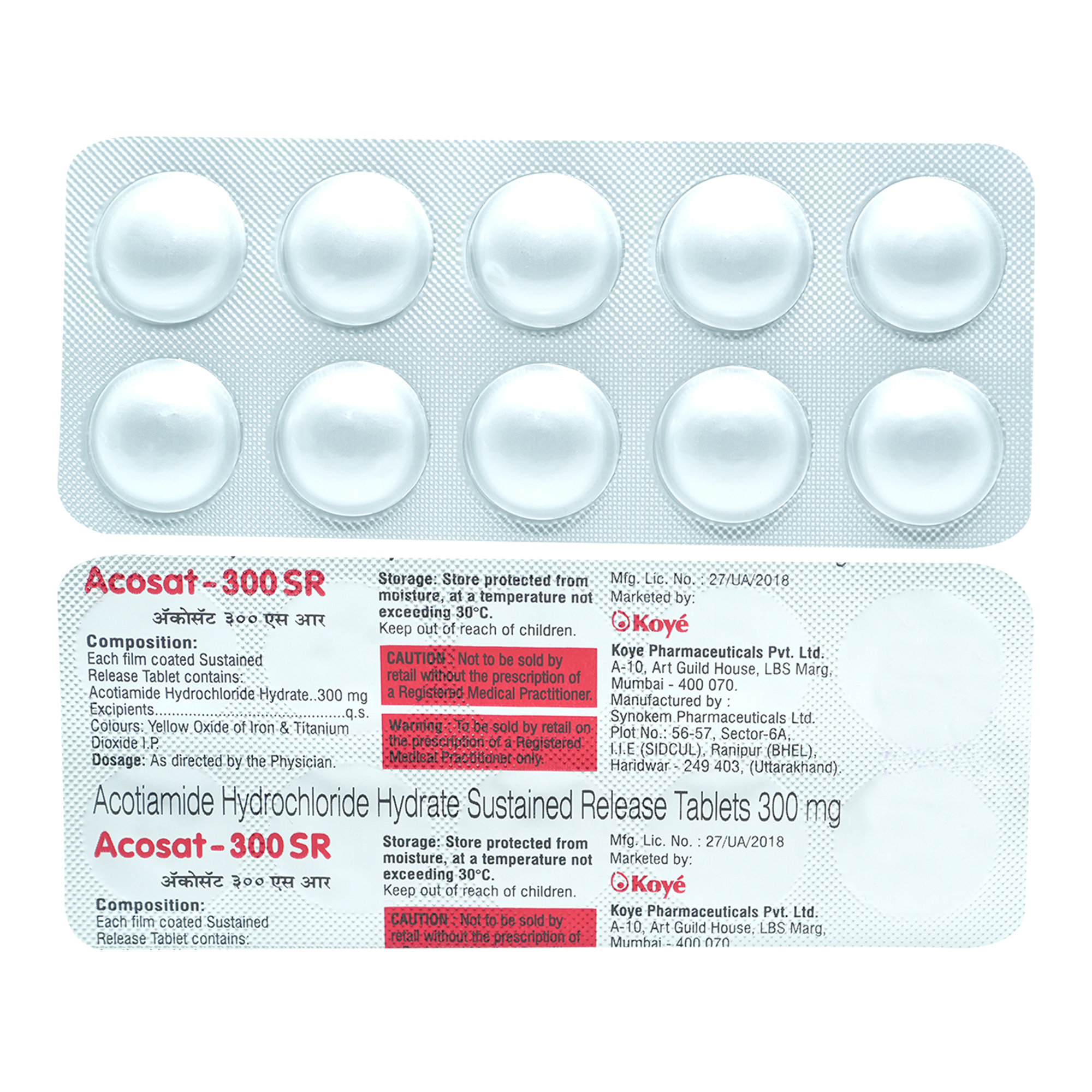Acotiamide
About Acotiamide
Acotiamide is used in the treatment of functional dyspepsia (indigestion). Functional dyspepsia arises when your upper digestive tract demonstrates symptoms of pain, upset, or early or extended fullness for a month or longer.
Acotiamide contains 'Acotiamide' that increases intestinal motility, accelerates gastric emptying time, and improves food movement throughout the gastrointestinal tract.
You may experience headaches, diarrhoea, constipation, rashes, and dizziness. Most of these side effects of Acotiamide do not require medical attention and gradually resolve over time. However, if the side effects persist or worsen, please consult your doctor.
If you are known to be allergic to Acotiamide or any other medicines, please tell your doctor. If you are pregnant or breastfeeding, please inform your doctor before taking Acotiamide. Acotiamide causes drowsiness and dizziness. It is advisable not to drive unless you are alert.
Uses of Acotiamide
Medicinal Benefits
- Acotiamide helps manage indigestion and related discomfort effectively.
- It increases acetylcholine levels and improves stomach muscle contractions, accelerates gastric emptying, and reduces the feeling of heaviness after meals.
- It promotes smooth food movement through the gastrointestinal tract, helping in better digestion and absorption.
- Overall, it enhances gastrointestinal function and improves the quality of life for individuals with digestive-related issues.
Directions for Use
- Take Acotiamide on an empty stomach or as advised by a doctor.
- Follow the recommended dosage and duration advised by the doctor to get optimal results.
- Swallow it as a whole with a glass of water.
- Do not crush, chew, or break it.
Storage
Side Effects of Acotiamide
- Headache
- Diarrhoea
- Constipation
- Rashes
- Dizziness
- Abnormal liver function
Drug Warnings
- Acotiamide should not be taken if you are known to be allergic to any of its components.
- Patients with kidney or liver disease should be monitored carefully, and the dose should be adjusted accordingly.
- Acotiamide should not be taken in a condition like heart disease, as Acotiamide may cause an irregular heartbeat.
- Before taking Acotiamide, inform your doctor if you have ever had gastrointestinal bleeding, jaundice, or intestinal perforation (small hole in the intestine).
- If you are pregnant or breastfeeding, please inform your doctor before taking Acotiamide.
- Acotiamide causes drowsiness and dizziness; it is advisable not to drive unless you are alert.
- The effect of Acotiamide with alcohol is unknown. It is advisable to consult your doctor before consumption.
- Keep your doctor informed about the ongoing medications or the ones you have taken in the past, including over-the-counter medicines and herbal medicines, before using Acotiamide.
Drug Interactions
Drug-Drug Interaction: Acotiamide may interact with anticholinergic agents (dicyclomine, trihexyphenidyl, ipratropium, belladonna alkaloids, benztropine mesylate, flavoxate, atropine, scopolamine, and hyoscyamine).
Drug-Food Interaction: No interactions were found due to a lack of research.
Drug-Disease Interaction: Do not use Acotiamide in patients with gastrointestinal haemorrhage and allergy.
Drug-Drug Interactions Checker List:
Safety Advice

Alcohol
cautionThe interaction of alcohol with Acotiamide is unknown. Please consult a doctor before consuming alcohol while using Acotiamide.

Pregnancy
cautionAvoid taking Acotiamide if you are pregnant unless prescribed by a doctor. Please consult your doctor if you have any concerns regarding this, your doctor will prescribe only if the benefits outweigh the risks.

Breast Feeding
cautionAcotiamide is not recommended unless prescribed by a doctor. Please consult your doctor if you have any concerns regarding this. Your doctor will prescribe only if the benefits outweigh the risks.

Driving
cautionAcotiamide may cause dizziness. So, it is not recommended to drive or operate heavy machinery when you take Acotiamide.

Liver
cautionTake Acotiamide with caution, especially if you have a history of liver disease. The dose may be adjusted by your doctor as required.

Kidney
cautionTake Acotiamide with caution, especially if you have a history of Kidney diseases/conditions. The dose may be adjusted by your doctor as required.

Children
cautionAvoid using Acotiamide in children as there is no information available due to lack of research. Inform your doctor before using Acotiamide.
Habit Forming
Diet & Lifestyle Advise
- Avoid foods such as tomatoes, coffee, chocolate, and spicy and fatty foods, as they may trigger or exacerbate heartburn.
- Eat small portions of food frequently.
- Do regular exercise for a minimum of 30 minutes per day. Maintain a healthy body weight, as obesity can also contribute to heartburn.
- Avoid foods that can worsen your symptoms, such as citrus fruits, coffee, and high-fat, pickled, and spicy foods.
- Avoid consumption of alcohol and quit smoking.
Patients Concern
Disease/Condition Glossary
Functional dyspepsia (FD) arises when your upper digestive tract demonstrates symptoms of pain, upset, or early or extended fullness for a month or longer. This situation can be chronic and can change your quality of life. There are some ways to decrease discomfort caused by functional dyspepsia, including medications, lifestyle changes, and therapy. Upper abdominal discomfort is defined as bloating or gassiness, a burning sensation, nausea, or feeling full too rapidly after eating.
FAQs
Acotiamide is used in the treatment of functional dyspepsia (indigestion). It works by increasing the level of a chemical (acetylcholine), which improves the gastrointestinal peristalsis movement.
Yes, Acotiamide may cause diarrhea as a common side effect. However, if the condition persists or worsens, accompanied by fever, watery stools, or persistent stomach pain, please consult a doctor. Also, drink plenty of water while taking Acotiamide to prevent dehydration.
You can avoid foods that can worsen your symptoms, like citrus fruits, coffee, high fat, pickled and spicy foods.
The most common side effects of Acotiamide include diarrhoea, constipation, vomiting, nausea, rashes, and headaches. However, these effects are not seen in all patients. If you are concerned about them or they persist, inform your doctor.
Acotiamide should not be taken in people suffering from gastrointestinal haemorrhage, mechanical obstruction (physically blocks the small intestine), or perforation (small hole in the intestine).
No, Acotiamide does not generally cause bloating. Tell your doctor if you feel bloated, and your doctor will guide you.
You are advised to take Acotiamide for as long as your doctor has prescribed it, depending on your medical condition and response to the treatment.
Acotiamide should be taken before a meal. The dose and duration of treatment will be decided by your doctor based on the severity of your condition.
No habit-forming tendencies were reported for Acotiamide as of now.
Yes, Acotiamide is effective medication used to functional dyspepsia (indigestion).
Do not stop taking Acotiamide without consulting your doctor, even if you are feeling better. Your symptoms may improve before the condition is completely cured. Therefore, it is advised to continue your treatment for the prescribed duration for better and complete treatment.
Acotiamide is a safe and effective medication if prescribed by a doctor. However, it is not suitable for everyone, especially those with specific underlying conditions. Please discuss with your doctor whether it is appropriate.
Although there is currently no cure for functional dyspepsia, most therapies can help to reduce symptoms to a manageable level. It might be helpful to know that only a small number of people still have severe symptoms after treatment.
Take Acotiamide on an empty stomach or as advised by a doctor. Swallow it as a whole with a glass of water. Do not crush, chew, or break it.
The interaction of alcohol with Acotiamide is unknown. However, as a thumb rule avoid consuming alcohol if you have stomach problems, as it may make your condition worse.
Do not take any other medications along with Acotiamide unless prescribed the doctor. Some medications such as anticholinergic agents (dicyclomine, trihexyphenidyl, ipratropium) may interact with Acotiamide.
Store in a cool and dry place away from sunlight. Keep this medicine out of the sight and reach of children.
Acotiamide contains Acotiamide, a member of salicylamides used to treat Functional dyspepsia (indigestion).









